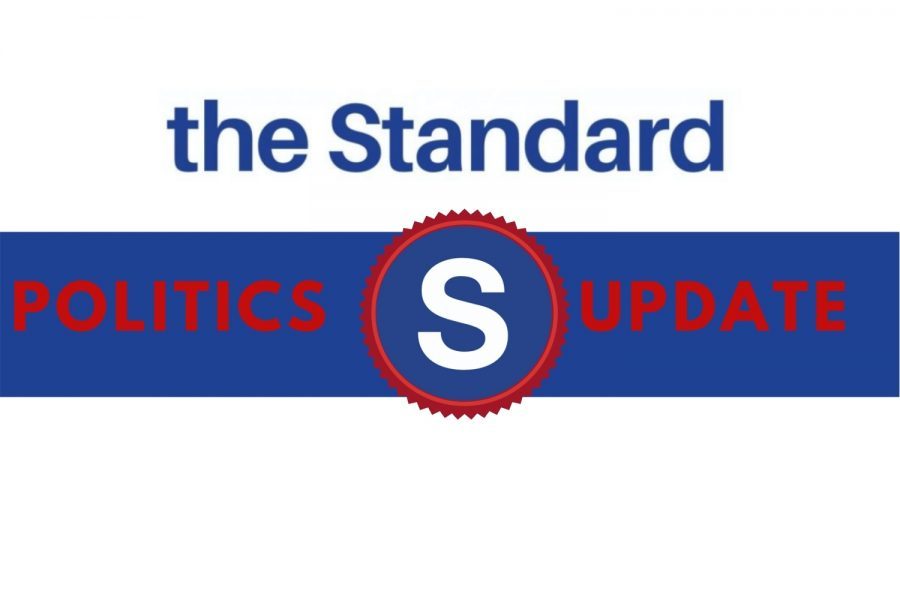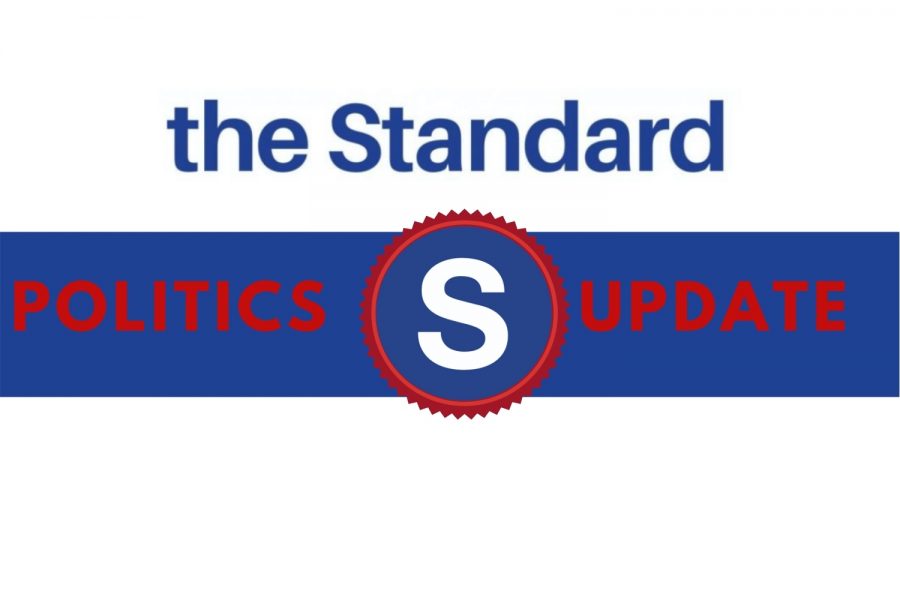The Bulletproof Incumbent
It’s difficult to conceive that a presidential incumbent who has endured a Russian collusion scandal, impeachment, a deadly pandemic and the worst economic contraction since the Great Depression could reappear without shame. But U.S. President Donald Trump, wounded as he may be, maintains a shot at re-election.
This week, The Atlantic and Bob Woodward dealt President Trump two further blows to his chances. The first of which came when The Atlantic reported Sept. 3 that Trump referred to American war-dead as “suckers” and “losers.”
Insulting veterans, especially those who made the ultimate sacrifice for the flag, would ordinarily draw disapproval from both Republicans and Democrats. But this is an extraordinary election, and Republicans haven’t condemned his words as severely as Democrats, dismissing the report as – cue Trump’s voice – fake news.
U.S. President Donald Trump, wounded as he may be, maintains a shot at re-election.
The report alleged that Trump refused to visit a French cemetery where U.S. war-dead were buried, saying “why should I go to that cemetery? It’s filled with losers.”
The report also mentions Trump’s long-standing gripe with the late Republican Senator John McCain, who was a prisoner of war in Vietnam. In the past, Trump had said he doesn’t admire McCain for his service because “he’s not a war hero. He was a war hero because he was captured. I like people who weren’t captured.”
Then, as the debate over Trump’s comments raged on, Woodward, a journalist revered largely for his reporting of President Richard Nixon during the watergate scandal, kicked him while he was down when a recording of an interview from March 19 between himself and Trump surfaced in which Trump admitted he purposely downplayed the risks of the COVID-19 pandemic. In the months following, White House Press Secretary Kayleigh McEnany and the rest of Trump’s administration have adamantly told the public he didn’t do anything of the sort.
Unlike the alleged disparaging of fallen veterans, fake news preachers can’t deny these words came out of Trump’s mouth, as arduously as they may try.
The recording emerged from one of the 18 interviews Woodward conducted with Trump for his new book “Rage,” which also shares that Trump recognized the severity of the virus early on, calling it “deadly stuff” in another interview Feb. 7. Unlike the alleged disparaging of fallen veterans, fake news preachers can’t deny these words came out of Trump’s mouth, as arduously as they may try.
There is one stark irony that emerges from Trump’s comments: the President never served in the military and cited supposed bone spurs in his feet to dodge the draft for Vietnam. The veracity of that claim has repeatedly been called into question. Trump’s need to feed his ego supersedes the ultimate sacrifice of the men and women he disparaged – a sacrifice he jumped through hoops to avoid.
The Biden campaign quickly seized both opportunities, directing attacks at President Trump over his controversial words, giving Biden a slight boost in polls nationally and in battleground states. However, whether the former Vice President continues to accost Trump through Nov. 3 will likely determine whether the U.S. sees its 46th president, or the tally stays on number 45.
The Fuelling Tensions
During summer, the Aegean Sea is a top destination for European elite, with yacht-infested coastlines being a staple of all luxury islands in the region. However, the sight of patrolling warships is not.
Greece and Turkey are currently in a naval standoff over the extent of their maritime borders. In a speech Aug. 21, Turkish President Erdogan announced an expedition into the Aegean Sea to determine the viability of offshore drilling sights for natural gas. There are an estimated 450 billion cubic meters of accessible fuel, all of which are worth an estimated $38 billion.
Both sides currently lay competing claims to the waterway. Greece, with a collection of around 6,500 islands in the sea, cite each as having their own maritime borders, despite only around 300 being inhabited.
Turkey disputes this, claiming the location of the gas falls within its economic zone under maritime law. Unsurprisingly, it’s one of just 15 nations not signed onto the UN convention on the Law of the Sea, which largely supports the Greeks. Nevertheless, they proceeded with the survey, sending gas tankers escorted by a convoy of destroyers into the contested waters.
Unclear borders and maritime law that govern the thousands of islands has created a vacuum of uncertainty that each side has and will continue to see as an opportunity to gain leverage in the region.
Greece was quick to respond to the incursion, both rhetorically and militarily. Prime Minister Mitsotakis condemned the Turkish military and deployed their own warships and aircraft to nearby islands in a show of force. The French government also backed Greece and committed naval assets to the region, sending a warship into the Mediterranean. Since the military encounter, NATO has agreed to facilitate talks between the two nations.
The recent skirmish highlights numerous potential pressure points of conflict within both Europe and NATO.
The first issue it raises is Greece and Turkey’s inability to resolve long-standing territorial disputes over the Aegean Sea. Unclear borders and maritime law that govern the thousands of islands has created a vacuum of uncertainty that each side has and will continue to see as an opportunity to gain leverage in the region.
The immense amount of gas resources in the sea fuels each country’s desire to claim the waterway as their own, and with it, the potential for military conflict between two supposed allies is exacerbated dramatically.
The other issue this incident highlights is Turkey’s broader rejection of democratic principles and embrace of both Russia and Iran, the two primary antagonists of NATO. President Erdogan conducted joint military operations with each nation in both the Libyan and Syrian civil wars, much to the alliance’s disdain.
In a similar vein, the two countries have also formed cooperation in oil sales, as Turkey is heavily reliant on the importation of energy sources. Its dependency on energy imports is nearly four times the global average, which can explain why they’ve been aggressive in claiming natural gas resources in the Aegean Sea.
Additionally, Turkey recently canceled its purchase of American-made F-35 fighter jets and missile defence systems, instead opting to buy the equipment from Russia. The move provoked sanctions from the U.S. Congress, which itself has a unique military relationship with Turkey, as it stations nukes within the country to fend off a hypothetical Russian naval advancement into the Aegean Sea.
The conflict in both spheres poses grave risks over NATO’s ability to contain Russia. Russian President Vladimir Putin has been liberal in his use of military forces in Europe in recent years, sending forces into Moldova and Ukraine. Only time will tell whether he has further aspirations of military operations on the continent, and Turkey as an ally both politically and economically would serve Putin well.
No deal, No Problem… at least for BoJo
Alarm bells were going off this week in Brussels, Belgium as U.K. Prime Minister Boris Johnson backed a bill that would alter Britain’s withdrawal agreement from the EU. The proposed law, introduced to Parliament Sept. 9, would give the U.K. the authority to determine any and all duties that would be applied to trade between Northern Ireland and Ireland. Under the current agreement, EU trading rules would still apply to goods that passed across the border.
Johnson defended the bill in the House of Commons, citing his desire to remove the bloc from what was purely a domestic matter. Experts have said the bill, if introduced into law, would violate international law. The EU threatened to take legal action against the U.K., as well as the implementation of economic sanctions on the country, an unprecedented action if taken.
The fallout over the legislation adds to Johnson’s political woes over the past month. A scandal over the scoring of A-level exams by a private company, coupled with rising COVID-19 infection rates in many parts of the country, have called the government’s competence in handling issues both at home and abroad into question.
Should the deal fall apart as a result, Johnson may very well be tallied as the third Prime Minister whose reign was marked short because of the saga.
The saga also marks another odd twist in Britain’s seemingly endless struggle to leave the E.U., that has taken four years and forced the resignation of two Prime Ministers in the process. Johnson, an outspoken critic of the E.U., promised to simply “Get Brexit Done” upon arriving at Downing Street. However, this bill may severely hinder his ability to fulfill that pledge, and has shattered confidence among E.U. leaders that Johnson has and will continue to negotiate in good faith over the continuing months. Should the deal fall apart as a result, he may very well be tallied as the third Prime Minister whose reign was marked short because of the saga.
The irony of that prospect is inescapable, for Johnson himself championed Brexit, the very issue that now threatens his political future.









